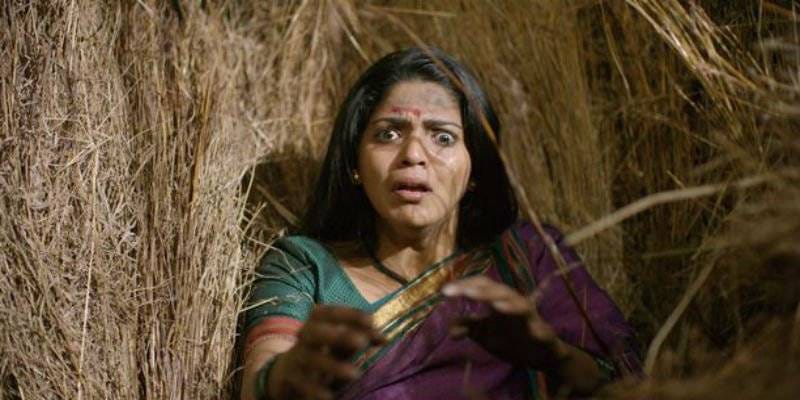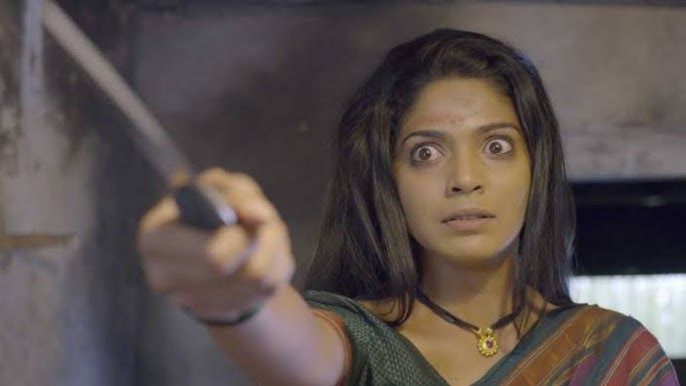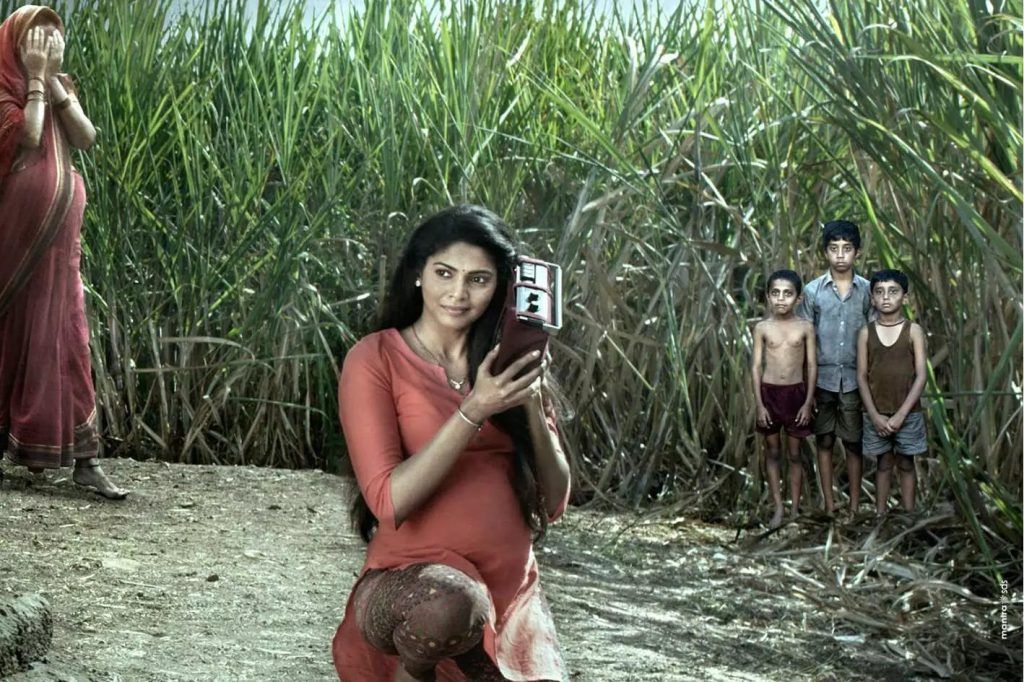Lapachappi (2017) is a Marathi horror film that transcends the conventional jump scares and supernatural elements to deliver a chilling commentary on deep-rooted societal evils. Directed by Vishal Furia, this film offers a perfect blend of horror and meaningful storytelling, leaving viewers with a lingering sense of unease and introspection.
The story follows a pregnant woman, Neha (Pooja Sawant), and her husband Tushar (Vikram Gaikwad), who are forced to take refuge in a remote village after encountering a financial crisis. They stay in an old house surrounded by sugarcane fields, owned by a mysterious elderly woman (Usha Naik). As strange occurrences begin to unfold, Neha finds herself entangled in an eerie web of secrets tied to the house and its past.
While the movie may initially seem like a straightforward ghost story, it delves deeper into the horrors of superstition, patriarchy, and female oppression.
Lapachappi uses horror as a vehicle to explore sensitive issues like female infanticide and the challenges faced by women in rural India. The sugarcane fields, a recurring motif, serve as both a literal and metaphorical backdrop for the claustrophobia and secrecy that defines the narrative.
Vishal Furia’s direction is commendable, as he masterfully balances horror with social commentary. The script keeps the audience guessing, and every scare is deeply tied to the storyline, making it impactful rather than gimmicky.

Pooja Sawant delivers a remarkable performance as Neha, capturing the character’s vulnerability and resilience with precision. Usha Naik’s portrayal of the mysterious elderly woman is haunting, adding an unsettling layer to the narrative. Vikram Gaikwad provides solid support, though the female characters dominate the screen.
The film’s cinematography, by Chandan Kowli, plays a pivotal role in building the eerie atmosphere. The sugarcane fields, dimly lit interiors, and clever camera angles immerse the audience in the story’s tension. The sound design amplifies the horror, with background scores that heighten the sense of dread without overpowering the narrative.
Lapachappi is not just a horror film; it’s a haunting reflection of societal evils that continue to plague rural India. With its powerful narrative and gripping performances, it manages to scare and provoke thought in equal measure.
If you’re looking for a movie that goes beyond conventional horror to address relevant social issues, Lapachappi is a must-watch.










